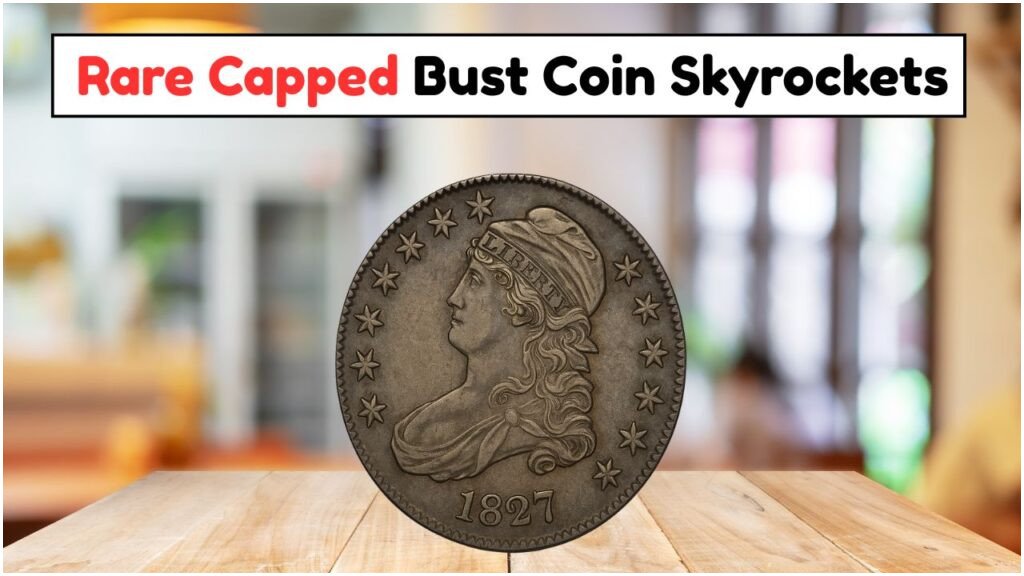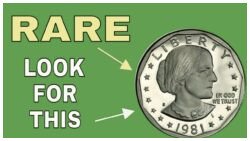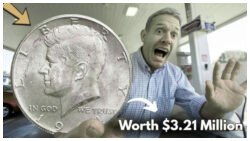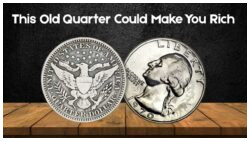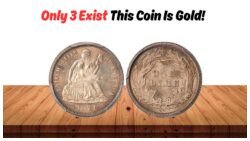1827 Capped Bust Half Dollar – The numismatic world is buzzing after an 1827 Capped Bust Half Dollar went viral, selling for a staggering $220,000 following a trending Cash App post. The incident has reignited interest in rare coins, especially among younger investors and collectors exploring unconventional assets via apps like Cash App and Venmo. This isn’t just a story of a coin—it’s a testament to how history, rarity, and digital virality can collide in today’s digital economy. In this detailed article, we’ll explore the story behind the 1827 Capped Bust Half Dollar, why it is so valuable, how it ended up on Cash App, and what this trend means for the future of collectible investments.
What is the 1827 Capped Bust Half Dollar?
The 1827 Capped Bust Half Dollar is one of the most famous and valuable U.S. coins ever produced. It belongs to the “Capped Bust” series that was minted between 1807 and 1839 and is cherished by collectors for its artistic design and extreme rarity.
Key Facts About the Coin:
- Denomination: 50 cents (Half Dollar)
- Metal Composition: 89.24% Silver, 10.76% Copper
- Designer: John Reich
- Mintage for 1827: Only 51,000 were produced, with fewer than 15 known surviving examples of the Proof Strike variant
Why is This Coin So Rare and Valuable?
This coin is rare due to both its mintage and its production error history. In 1827, some overdated varieties were created using outdated dies from earlier years. Additionally, the proof version of the coin was made in extremely limited numbers.
Reasons for High Value:
- Historical importance: Early U.S. Mint era
- Limited production: Fewer than 15 proof coins are known to exist
- Condition: The coin that sold for $220,000 was graded PR-65 (Proof)
- Auction history: Previously sold for over $150,000, value increased after going viral
How Did It Go Viral on Cash App?
In early July 2025, a video posted on TikTok and X (formerly Twitter) showed a user purchasing the coin via Cash App’s investing platform. The post quickly gained millions of views, with hashtags like #CashAppCoin, #RareCoinValue, and #CappedBustDollar trending.
The Viral Chain of Events:
- A TikTok user shared a story of gifting the coin to a friend via Cash App’s collectible marketplace
- Influencers started commenting on its historical significance
- The coin’s price jumped from $180,000 to $220,000 in under 48 hours
- Cash App experienced a spike in searches for “rare coins”
Similar Coins That Have Sold for High Value
To give perspective, here are a few other rare coins that fetched massive sums in recent auctions:
| Coin Type | Year | Grade | Sale Price | Reason for Value |
|---|---|---|---|---|
| Capped Bust Half Dollar (Proof) | 1827 | PR-65 | $220,000 | Viral + Rarity |
| Flowing Hair Silver Dollar | 1794 | MS-66 | $10 Million | First U.S. Silver Dollar |
| 1933 Double Eagle Gold Coin | 1933 | MS-65 | $18.9 Million | Illegal to own, 1 known legal |
| 1804 Draped Bust Dollar | 1804 | PR-68 | $4 Million | Historical gift coin |
| 1894-S Barber Dime | 1894 | PR-66 | $2.1 Million | Only 9 known |
| 1943 Bronze Lincoln Cent | 1943 | MS-64 | $282,000 | Minting error |
| 1913 Liberty Head Nickel | 1913 | PR-64 | $3.7 Million | Only 5 exist |
How to Know If You Own a Rare Coin Like This
With coin prices soaring, it’s worth checking your collection or inherited coins. Here’s how to find out if your coin is valuable:
Steps to Identify Rare Coins:
- Check the date and mint mark: Coins from 1793–1940 are more likely to be rare
- Look for errors: Off-center prints, double dies, and overdates can be valuable
- Examine the condition: Higher grades fetch higher prices
- Use online databases: Try PCGS or NGC websites
- Consult an expert: Visit a certified coin dealer or submit for grading
The Future of Rare Coin Collecting Through Apps
As platforms like Cash App, Robinhood, and Venmo explore fractional and collectible investments, we are likely to see a rise in rare coins being sold digitally. This adds liquidity, accessibility, and new interest from Gen Z and Millennial users.
Potential Upcoming Trends:
- Fractional ownership of historical coins
- NFT-backed coins with digital certificates
- Live auctions integrated into finance apps
- Gamification of collectibles with rewards
FAQs of 1827 Capped Bust Half Dollar
Q1. Why is the 1827 Capped Bust Half Dollar so rare?
A. Fewer than 15 proof versions exist today, and many were melted down or lost over time.
Q2. Can you really buy coins through Cash App?
A. Yes, some collectibles and assets are being traded on Cash App’s new “alternative investing” beta feature.
Q3. What does PR-65 mean for a coin?
A. It stands for “Proof” with a grading of 65, indicating excellent condition with minimal flaws.
Q4. How do I check the value of my old coins?
A. Use tools like PCGS.com, or consult a licensed numismatist or coin grading company.
Q5. What makes a coin go viral online?
A. Unique stories, emotional backstories, rarity, and influencer amplification can quickly push coin-related posts into the viral space.

